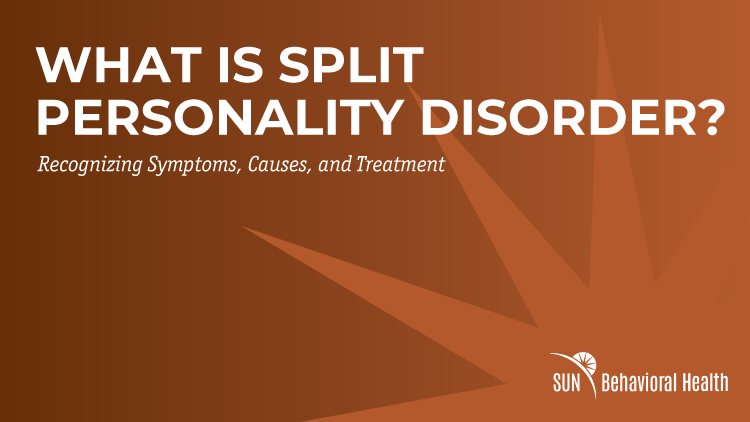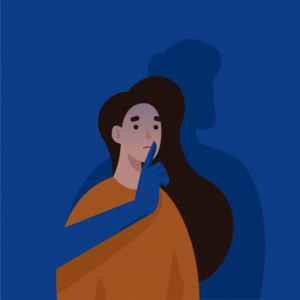Services

When most of us think of split personalities or more appropriately, Dissociative Identity Disorder (DID), we think of situations like Split or Sybil. Some of us may even think of *spoiler alert* Identity, a 2003 thriller.
Point is, when we see those who experience DID—or a multiple personality type of disorder—we see them as violent kidnappers, murders, or in the case of Sybil, someone who lost their perfect life due to their disorder and “magically” got it all back by the end of the film due to being “cured”.
 This is not only far from the truth but it can also be damaging to those who live with Dissociative Identity Disorder. And while we all love a good psychological thriller, it is important to recognize that these can lead to some very glaring stigmas for those with mental health disorders of all kinds but especially those with personality or dissociative disorders.
This is not only far from the truth but it can also be damaging to those who live with Dissociative Identity Disorder. And while we all love a good psychological thriller, it is important to recognize that these can lead to some very glaring stigmas for those with mental health disorders of all kinds but especially those with personality or dissociative disorders.
Actually, most experts agree wholeheartedly that those with this type of disorder are considerably more likely to hurt themselves rather than ever hurt another person. In fact, more than 70% of those with dissociative identity disorder have attempted suicide.
Instances of dissociative identity disorder are also incredibly rare;, only a maximum of 1% of the world’s population is estimated to have a true case of DID.
But what is a personality disorder or a dissociative disorder?
Our personality is our way of thinking, feeling and behaving. It is what makes a person different from other people and helps us determine our interests. The personality is influenced by experiences, environment (surroundings, life situations) and inherited characteristics.
A person’s personality typically stays the same over time only featuring minor changes in relation to major events. That means that a personality disorder is a way of thinking, feeling and behaving that deviates from expectation. When someone has a personality disorder, these differences from a normal personality or reponses last over a period of time.
There are 10 specific types of personality disorders. They include:
Personality disorders are long-term patterns of behavior that differ, usually significantly, from what is expected. Meanwhile a dissociative disorder is a little different.
Dissociative disorders involve problems with:
Dissociative symptoms are also known to potentially impact every area of mental functioning. These symptoms can include detachment, loss of memory or amnesia. These types of disorders are associated with the experience of traumatic events. This means that they may come on at a later time, unlike a personality which we have early on in life.
Above, we saw the different types of disorders and over time experts came to agree that a diagnosis like split personality better fit in with the dissociative disorder category rather than the personality disorders section. In fact, that is part of why the name was changed: to better represent the disorder.
Some of the main differences between a personality disorder and a dissociative disorder is that personality disorders are not usually the result of trauma and most of them are always there. If you recall, above we saw that the personality is something that is pretty unchanged throughout our lifetimes whereas split personality, or DID, comes on as the result of trauma.
So, what are the symptoms or signs of DID?
A person with DID has at least two, but sometimes more than two, different and distinct personalities. The person’s usual (“core”) personality and what are known as alternate personalities, or “alters.” It is common that the person may experience amnesia when one of their alters takes control over their behavior for a period of time.
Each alter, or personality, has distinct individual traits. They often also have a personal history, and a way of thinking about and relating to his or her surroundings. Alters can even be of a different gender, have a different name, or a distinct set of manners and preferences. In some rare cases, alters have even been seen to have allergies that differ from the core personality.
The person with DID may or may not be aware of the other personality states. Usually stress, or even a reminder of a trauma, can trigger a switch of alters. This can sometimes be abrupt and unexpected.
In some cases, the person with DID may benefit from a particular alter. This can be seen if a person has a more timid alter that gives way to a more assertive alter when negotiating a contract or maybe even buying a new car. However, more often than not DID creates a chaotic life. This leads to significant problems in personal and work relationships.
DID hosts many psychological symptoms including:
Those with DID often describe it as feeling that they have suddenly become observers of their own speech and actions. Some report hearing voices. In some cases, the voices accompany multiple streams of thought. These are usually something that the individual has no control over.
They might also experience sudden impulses or strong emotions. Sometimes they may even feel that they don't feel control or a sense of ownership over these thoughts, feelings, or emotions. In some instances of DID, individuals report that their bodies suddenly feel different or that they experience a change in attitudes or preferences.
 We saw above that in many cases, if not all, DID is associated with trauma. About 90% of the cases of DID involve some history of abuse.
We saw above that in many cases, if not all, DID is associated with trauma. About 90% of the cases of DID involve some history of abuse.
The Cleveland Clinic suggests “the trauma often involves severe emotional, physical, and/or sexual abuse. It might also be linked to accidents, natural disasters, and war. An important early loss, such as the loss of a parent or prolonged periods of isolation due to illness, may be a factor in developing DID”.
It may not come as a surprise by now that a dissociation is often thought of as a coping mechanism. This mechanism is something that a person uses to disconnect from a stressful or traumatic situation. It can also help them to separate traumatic memories from normal awareness.
The National Alliance on Mental Illness (NAMI) describes DID as a disorder that forms when someone is trying to escape reality. As a result, the people with DID shift between separate identities they form inside themselves to escape the trauma or their triggers.
Triggers are real or symbolic traumas that can lead to episodes of DID. These could be mild events like minor accidents, illnesses or stress. Or they can be more exact like reminders of a past physical abuse, such as by a trusted adult or parent.
We know that there is no way that this short blog can answer all the questions that can come up about Dissociative Identity Disorder, so we’ve created a list of the most commonly asked questions.
What is the difference between split personality disorder and multiple personality disorder?
These are two ways to describe the same thing, similar to how a split personality is also known as a dissociative identity. In the world of behavioral health, words matter and have really large stigmas associated with them. Usually, split personality has a more negative connotation, or imagery that we think of when we hear it, than say, multiple personality. They both are more stigmatized than the clinical description and name of Dissociative Identity Disorder.
What is split personality disorder called?
As we described above, split personality is generally known as dissociative identity disorder now. This is in part because of the stigmas surrounding other names that used to be commonly used, but also because the disorder is not actually a personality disorder at all. Since the disorder is actually a dissociative disorder it makes more sense to call it dissociative identity disorder than split personality.
What causes a person to have a split personality?
The only proven—and also the most common—cause for split personality is trauma. The trauma can come in any form but the development of split personality, better known as dissociative identity disorder, is a result of trying to escape or hide from a trauma. Sometimes trauma is so severe that our brain creates an escape for us so that we can endure it better.
Does a person with multiple personality disorder know they have it?
Usually those with a multiple personality, or dissociative identity disorder, will recognize that something is abnormal due to symptoms like amnesia but they may not realize it is due to having alters or personalities that are taking over to handle triggers or exposure to trauma.
It is important to be aware that mental health issues are not your fault. Seeking professional therapeutic help does not mean that you’ve failed or done anything wrong. When it comes to tackling these sensitive issues, you’re not alone.
At SUN, our master’s-level clinicians are equipped with the skills necessary to guide you towards mental well-being and clarity. If you or someone you know is struggling, we can help. Please call us today at 302-604-5600.